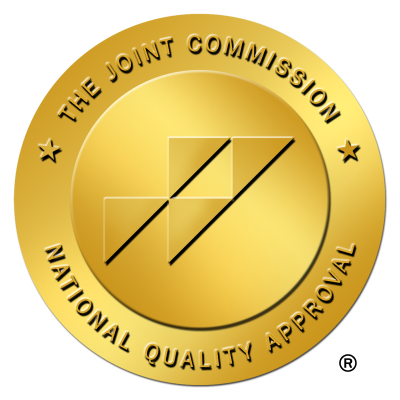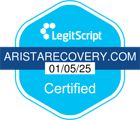How Do Family Triggers and Relate to Addiction?

The Impact of Family Triggers on Addiction Recovery
Grasping how family dynamics whip up addiction recovery is a biggie. Family triggers can really mess with someone’s ride towards sobriety and their fight against slipping back. Spotting and handling these flashpoints is key to getting clean for good.
Understanding Addiction Triggers
Addiction triggers are like little landmines that spark cravings or a thirst for past habits. They come in two flavors: stuff going on inside your head and stuff happening outside. Things like anger or being bored fit into the ‘inside your head’ category. The outside ones involve people or places that remind someone of old ways (Experience Recovery). Figure out what your triggers are, and you’re already a step ahead.
Both trigger types are huge in the recovery gig. For example, feeling guilty or stressed can push someone towards self-medicating. Meanwhile, bumping into the old crew or hangouts can drag someone back into cravings. Knowing the role family dynamics play in these triggers is super important, especially when family ties get all tangled (Arista Recovery).
Types of Addiction Triggers
Let’s break down addiction triggers into four camps: environmental, emotional, behavioral, and psychological. Each one brings its own kind of trouble for anyone trying to stay clean:
| Trigger Type | Description | Examples |
|---|---|---|
| Environmental | Anything around you that might stir up cravings | Places like bars where you used to party |
| Emotional | Feelings that shout, “Let’s use!” | Stuff like stress, anxiety, or feeling down |
| Behavioral | What you do that makes you want a fix | Things you used to do when getting high with friends |
| Psychological | Thoughts playing tricks in your mind | Remembering old times or negative self-chatter |
Sidestepping these traps is a must to avoid falling off the wagon. Picking up tricks to manage your emotions and steering clear of risky spots can really beef up one’s recovery plan. For more about how your family can stir things up, check out our guide on talking to family about your addiction.
To wrap it up, pinning down how family triggers weave into addiction means getting a handle on what’s going on inside your head and outside. Using solid strategies to smack down these triggers gives a real boost in locking down successful recovery.
Effects of Family Dynamics on Addiction
Family's the name of the game when it comes to addiction. Their quirks and antics can both fuel and put the brakes on addiction. We gotta get what makes families tick, and how that ticking messes with addiction’s clock. Let's peek into the mix of parents hooked on stuff and those less-happy childhood days.
Parental Substance Misuse
When parents are chasing their next fix, juggling family life gets a little wobbly. Kids end up in the back seat, which isn’t the best for their growing minds (EHN Blog).
Numbers don’t lie: if Mom or Dad's on the bottle too much, you're more likely to follow the same path. In the U.S., 10% of kiddos are growing up with at least one tipsy parent. These little ones often land in the swirl of addiction, just like their folks.
| What’s Happening | What it Does |
|---|---|
| Parents Misusing Substances | Kids might pick up bad habits later |
| Not Enough TLC | Growth goes haywire |
| Widely Seen Issue | 1 in 10 kids in States face this |
Adverse Childhood Experiences
Adverse childhood experiences, or ACEs for short, are the bummer events like family drama, troublesome traumas, and having grown-ups misusing the bad stuff around them. These can inflict wounds that heal inadequately, spreading trauma across generations. Moms dealing with their bag of trauma may resort to being overly accommodating, further enabling their kids’ toxic habits (EHN Blog).
Addictions in families set off a roller coaster that keeps spiraling, creating a stormy, imbalanced home life. Tons of stress, and not enough open talks or family hugs to go around (NCBI Bookshelf). It turns into a vicious cycle: addiction stirs up more disorder, disorder nudges even more addictive habits.
| Rough Childhood Stuff | Impact |
|---|---|
| Family Stress | Sky-high stress, and family feels broken |
| Weak Family Ties | Not much chit-chat or agreement |
| Passed-Down Trauma | Kids might fall into addiction's trap sooner |
Grasping how family drama, from parents in a substance pickle to those troubling kid years, really helps in taking on the challenge of overcoming addiction. For tips on chatting about this stuff with loved ones, check our piece on talking to family about your addiction.
Family Roles in Addiction Recovery
Family vibes are like the unsung heroes, or maybe villains, in addiction and recovery tales. Getting a grip on these roles sheds light on how family dynamics trigger or soothe addiction and the healing journey.
Enabling Behaviors
Families sometimes play the part of the unwitting accomplice. An enabler might blur the lines, pretend there's no addiction elephant in the room, and sweep problematic behaviors under the rug. This blind-eye approach can stall an individual’s journey toward getting that much-needed help (source: Legends Recovery). Family members might put the addict’s needs before all else, acting like pilots steering a plane into turbulence instead of towards clear skies of recovery. It's like trying to mend a broken wing while still flying. Facing these family habits is key, as they may tie everyone into emotional and psychological knots, impacting both body and mind (source: Arista Recovery).
| Enabling Behaviors | Consequences on Recovery |
|---|---|
| Ignoring addiction | Blocks the path to seeking help |
| Excusing actions | Throws fuel on the addiction fire |
| Hiding mishaps | Erases accountability |
Spotting and fixing the enabler’s actions is like flipping the switch to illuminate a healthier way forward in recovery.
Supportive Family Dynamics
On the flip side, having a cheerleading squad at home increases the odds of kicking addiction to the curb. Folks who feel the warmth of family backing are less likely to slip back into old habits. Warm family ties spark resilience and promote positive ways of dealing with issues. However, a gloomy home could add stress, steering recovery off-course (source: Arista Recovery).
| Supportive Actions | Good Vibes on Recovery |
|---|---|
| Honest chats | Builds trust and a sense of being got |
| Setting clear limits | Ensures safety and holds one accountable |
| Lending emotional support | Bolsters resilience |
Grasping how family triggers tie into addiction requires a keen eye. Pinpointing emotional, behavioral, and environmental sparks in the family setting can arm individuals with the grit and nerve needed to steer through the choppy waters of addiction recovery (source: Legends Recovery).
Family Therapy and Support
The family scene can have a big hand in addiction recovery. When family members get involved, it can really amp up how well treatment works and create a safety net for those clawing their way back to normalcy.
Role of Family Therapy
Think of family therapy as a crucial cog in the machine of addiction recovery. It sets up a space where folks can be real with each other—sharing feelings, talking about what pushes their buttons, and dealing with past bumps in the road linked to addiction. When mom, dad, and the siblings join the recovery party, chances for pulling through get a major boost.
Studies back this up, showing that families are ace allies for upping recovery success and treatment among young people battling substance use disorders (SUD) (NCBI). The therapy tackles the special hurdles these young folks face and fine-tunes the support they need to make real progress.
Family therapy isn't just about putting addiction under a microscope; it gives everyone in the family skills to tackle the everyday emotional rollercoaster. When people grasp how their actions sway recovery, they can tweak their behavior to genuinely back one another up.
Importance of Family Support
Family support is a game-changer in the recovery track. A cheerleading squad at home can cut relapse chances and spark a sense of unity. In 2019, only 9% of youngsters who met the criteria for SUD got any help (NCBI). This stat screams out for more family involvement, so individuals don't have to go it alone.
A family that’s got your back brings tons of perks:
| Benefit | Description |
|---|---|
| Emotional Support | A shoulder to cry on and someone to talk with during those tough moments. |
| Accountability | Helping loved ones stay on track with their recovery efforts. |
| Reducing Isolation | Keeping loneliness, which often tags along with addiction, at bay. |
| Resource Access | Opening doors to therapy, support groups, and other recovery paths. |
About 6.4 million young folks under 26 in the U.S. hit the SUD mark (NCBI). So, when families jump in with both feet, the impact on recovery could be huge.
In steering their loved ones through recovery, families should have open heart-to-hearts about addiction talking to family about your addiction and brainstorm ways to stay in the loop. By putting communication and empathy first, families can not only boost their loved ones but also tighten the bonds that hold them together.
Family Triggers and Risk Factors
Figuring out how family life and addiction are tangled up together can shine a light on why some folks struggle with recovery. Two big pieces of the puzzle are genetics and trauma, both lending a helping hand—albeit an unwanted one—to the odds of someone succumbing to substance use issues.
Genetics and Substance Use Disorders
There's some evidence out there that growing up in a household where substance abuse runs rampant might set the stage for the same struggles later on in life. This isn't just a case of monkey see, monkey do; there are some heavy genetic cards being dealt here. And while genes play a big part, the family vibe around you can intensify this predisposition. So, getting a handle on how these backgrounds jive could really boost efforts to support folks on their path to recovery.
| Family Background | Chance of Catching the Habit |
|---|---|
| No history | Pretty low |
| One parent struggling with addiction | Sorta in the middle |
| Both parents in the thick of it | Much higher |
This handy table spells out the stakes, showing how having a family with a history of substance abuse might ramp up the chances of falling into addiction. Taming these family triggers matters big time when it comes to building a recovery-friendly atmosphere.
Trauma and Addiction Development
Adverse childhood experiences, often dubbed ACEs, leave a complicated yet powerful mark on addiction. When kids face tough times like abuse—be it physical or emotional—it often sours their view of substances, pushing some toward substance use disorders. If home life is chaotic, with things like haphazard discipline, parents misusing substances, or just plain neglect, kiddos are more likely to travel the road toward addiction.
In the U.S., about 6.4 million young folks under 26 fit the bill for having a substance use disorder. Of these, over 300,000 youngsters grapple specifically with opioid use disorders. Every day, around 1,800 new faces dive into heroin or painkiller misuse, underscoring the pressing need for proper interventions and that all-important family role in treatment.
| Trauma Faced | Possible Effects on Substance Use |
|---|---|
| Emotional abuse | Skyrocketing risk of anxiety or depression and turning to substances |
| Physical abuse | More likely to try out substances early on |
| Neglect | Increased risk of using drugs to numb emotional pain |
Getting wise to how trauma and family relationships feed into addiction can arm families with the power to shape recovery-friendly spaces. If you're keen on learning about family roles in recovery, check out our musings on how can routine in recovery help you or loved one and talking to family about your addiction.
Strategies for Family Involvement
Having family on board with addiction recovery can be like adding a secret weapon to the process. When families step up and create environments loaded with love and understanding, they can turn the rocky road to recovery into a smoother path.
Family-Oriented Practices
Families hold a big chunk of the responsibility when it comes to steering loved ones away from substance use disorder (SUD). Research backs this up, showing that supportive family ties can seriously ramp up healthy growth, especially in young folks tackling SUD. Here's how families can jump into action:
| Practice | Description |
|---|---|
| Family Therapy | It’s a chance for everyone to get stuff out in the open. Here, families can untangle issues, understand what makes them tick, and learn new ways to talk to each other. |
| Support Groups | Groups like Al-Anon or Nar-Anon are like a school for families, teaching them to handle addiction better and offering a shoulder to lean on. |
| Workshops | These are like tech classes but for relationships, teaching folks how to deal with stress and stop bad habits in their tracks. |
Research keeps telling us that when families roll up their sleeves and dive into these practices, substance issues take a hit right across the board. Families get the lowdown on their habits and can tweak their roles, helping make recovery stick.
Building Supportive Environments
Turning a house into a recovery-friendly zone is no small feat. For young adults, especially those aged 15-26 juggling independence and risky habits, this makes all the difference. To build a supportive environment, families can:
| Strategy | Details |
|---|---|
| Open Communication | Let’s get real about addiction. Honest chats build up trust and understanding, one truth bomb at a time. |
| Accountability | By setting clear-cut boundaries, enabling behaviors lighten up, and personal responsibility takes center stage. |
| Positive Reinforcement | A pat on the back for progress—even the small stuff—can work wonders in nailing down good habits. |
Families should get savvy about addiction recovery to spot red flags early and step in when needed. Dive into our article on talking to family about your addiction for more pointers on starting these crucial conversations.
To sum it up, families that lean into these practices and build supportive spaces can help answer the tricky question of how do family triggers relate to addiction. Being clued in means families can really move the needle on recovery, cutting down risks and setting the stage for a lasting change.


